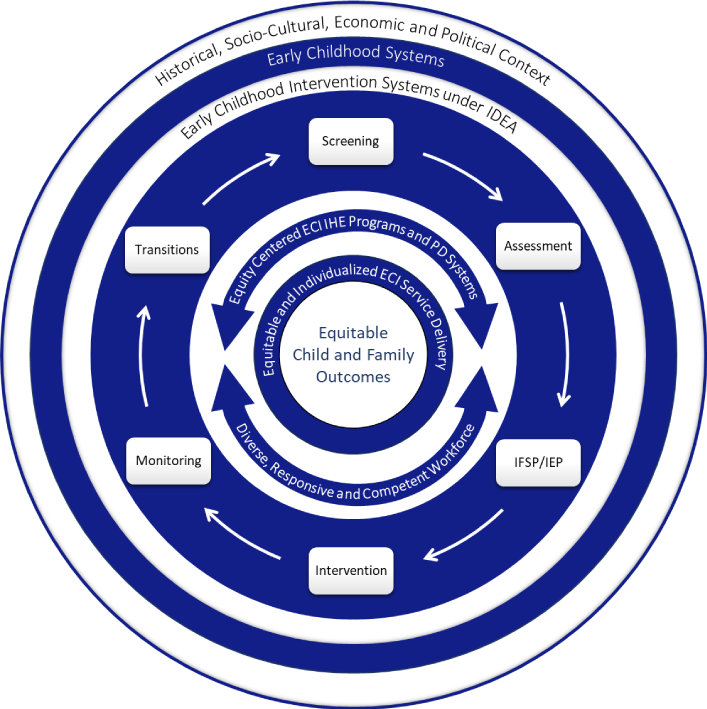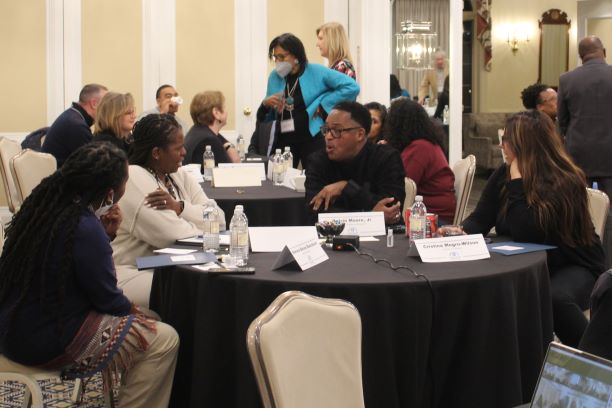Our Purpose
To increase the capacity of institutions of higher education, professional organizations, states, territories, and tribal nations to prepare and support a diverse and competent workforce able to change the historic and current conditions that systemically inhibit the delivery of equitable early childhood intervention to each and every child and their family.

Nyansapo or Wisdom Knot, is a symbol of the Akan people of Ghana, and represents patience, integrity, intelligence, and the capacity to choose the best means to a goal.
Early Childhood Intervention is a statewide system of services and support provided to eligible children, ages birth to five, and their families, as required by the Individuals with Disabilities Education Act (IDEA).
Personnel includes all personnel categories providing IDEA Part C and Part B services.
Center for Equity Equity is interpreted and applied in different ways depending on the context or locus of interest, the historical and current socio-cultural and political environment, and the experiences and individualized needs of a child, adult, family, community, state, territory, or tribal nation.
Equity in Early Childhood Intervention
Every infant and young child with a delay in development or disability and their family, will have access to and participate in early childhood intervention, that is individually designed to be racially, ethnically, culturally, and linguistically responsive, to ensure equitable, appropriate, and optimal child and family outcomes.
When we achieve Equity in Early Childhood Intervention, we will see...
the absence of systematic disparities and unjust policies and practices that impact infants and young children with disabilities and their families in their pursuit of what they want and need to be included as valued members of their communities;
and the removal of structural barriers that deny infants and young children with disabilities and their families' opportunities to belong, thrive and learn because of their disability, and other identities and affiliations they may have such as culture, race, ethnicity, language, national origin, geography or place, ideology, sexual orientation and gender identity, socioeconomic status, and spirituality. *




Our Conceptual Framework
The conceptual framework for the ECIPC represents the contexts, systems, programs, and services in which an infant or young child with disabilities or delays and their family interact to achieve improved outcomes.
The Center will facilitate the development and implementation of equity centered early childhood intervention programs of study at Institutions of Higher Education and within state systems of professional development, work on partnerships with states to recruit and retain a diverse workforce, and facilitate in the implementation of equitable early childhood intervention systems comprised of evidence and equity based service components.


Our Work
We will engage in the technical and adaptive work of initiating, implementing and sustaining systemic and institutional change across Institutions of Higher Education, Professional Organizations, and State Early Intervention and Early Childhood Special Education Programs under IDEA to advance equity and diversity within statewide systems of early childhood intervention.
To do this we have adopted an ECIPC Framework that consists of Policy, Practice and Outcomes.
Our Framework




